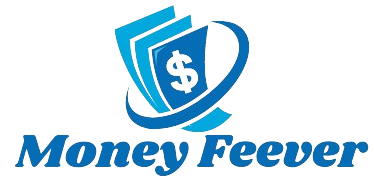“Success is not final; failure is not fatal: It is the courage to continue that counts.” This quote by Winston Churchill could easily be the mantra for those involved in multi-level marketing (MLM) companies. Herbalife, one of the most prominent names in the MLM industry, has faced scrutiny and controversy over the years, with many questioning whether it operates as a legitimate business or a Ponzi scheme. In this blog post, we will delve into Herbalife’s business model, analyze whether it aligns with Ponzi schemes, discuss its similarities to pyramid schemes, and explore its position as an MLM company.

Herbalife’s Business Model
Herbalife is a global nutrition company that sells health and wellness products, including dietary supplements, weight management products, and personal care items. The company operates on a multi-level marketing (MLM) model, where independent distributors sell products and recruit new members to join the business.
Income Sources
Herbalife distributors have two primary sources of income:
- Product Sales: Distributors purchase products at a wholesale discount and sell them at retail prices, earning a profit on each sale.
- Recruitment: Distributors are encouraged to recruit new members, earning bonuses and commissions based on the sales made by their recruits and their recruits’ recruits, forming a network or “downline.”
Company Claims vs. Criticisms
Herbalife asserts that its business model empowers distributors to earn income and grow their own businesses. The company provides training and support to help distributors succeed. However, critics argue that Herbalife places too much emphasis on recruitment over product sales, raising concerns about the sustainability and ethics of the business model.
Does Herbalife’s Business Model Match a Ponzi Scheme?
Understanding Ponzi Schemes
A Ponzi scheme is a fraudulent investment operation where returns are paid to earlier investors using the capital of newer investors, rather than from profit earned by the operation. The scheme relies on a continuous influx of new investors to maintain returns, ultimately collapsing when the flow of new money slows down.
Comparison with Herbalife
While Herbalife operates on an MLM model, there are key differences between its business model and a Ponzi scheme:
- Product-Based Revenue: Unlike Ponzi schemes, Herbalife’s revenue comes from selling tangible products. Distributors are encouraged to sell products to consumers and build a customer base, which provides a legitimate source of income.
- Sustainability: Herbalife’s focus on product sales can create a sustainable income stream for successful distributors, unlike Ponzi schemes, which are inherently unsustainable and collapse when new investors stop joining.
- Regulatory Compliance: Herbalife has taken steps to comply with regulations, including a 2016 FTC settlement that required changes to its business practices, such as emphasizing retail sales over recruitment.
Criticisms and Concerns
Despite these differences, critics argue that Herbalife’s strong emphasis on recruitment and the high turnover rates among distributors resemble characteristics of a Ponzi scheme. Many distributors struggle to earn significant income, and the majority of profits are concentrated among a small percentage of top distributors.
Is Herbalife a Pyramid Scheme?
A pyramid scheme is a form of investment in which each participant recruits others to make investments. The primary focus is on recruiting new participants rather than selling products, and the scheme collapses when it becomes impossible to recruit more participants.
Comparison with Herbalife
- Product Emphasis: Herbalife distinguishes itself from a pyramid scheme by offering real products that are sold to consumers. Distributors earn income through product sales, which is a crucial aspect of the business model.
- Recruitment Incentives: While Herbalife does incentivize recruitment, the company has implemented measures to ensure that distributors focus on selling products, such as requiring a certain percentage of sales to come from retail customers.
- Legal Compliance: Herbalife has faced legal challenges and regulatory scrutiny over its business practices. The FTC settlement in 2016 required Herbalife to restructure its compensation system and increase transparency, aligning it more closely with legal MLM practices.
Criticisms and Concerns
Critics argue that Herbalife’s reliance on recruitment and the structure of its compensation plan still bears similarities to a pyramid scheme. High dropout rates among distributors and the difficulty of earning substantial income without recruitment remain points of contention.
Read more: Is Amway a Ponzi Scheme? Unveiling the Truth Behind the Controversy
Why Herbalife is not a Ponzi or Pyramid Scheme?
Herbalife has faced accusations of being a pyramid scheme, but several factors distinguish it from this fraudulent model. Here are some reasons why Herbalife operates as a legitimate business:
Compensation for Product Sales, Not Recruitment
Herbalife independent members earn income exclusively through the sale of products. Unlike pyramid schemes, Herbalife does not compensate members for recruitment alone. The focus is on product sales and building a customer base.
Affordable Entry and Refund Policies
Herbalife’s entry cost is relatively low, with a Starter Pack priced around £40, reducing financial risk for new members. Additionally, under the Gold Standard Guarantee, members can receive a full refund on their Starter Pack within 90 days if they choose to cancel their membership. Members can also return unsold products for a refund within 12 months, ensuring protection from financial losses.
Support and Training
Herbalife provides extensive support and training to help independent members build sustainable businesses. This includes access to online resources and the ability to set up an online shop at no additional cost, equipping members for success.
Commitment to Quality
Herbalife invests heavily in research and development to ensure high-quality products. Over the past decade, the company has dedicated over $300 million to scientific advancements and technological improvements, underscoring its commitment to excellence.
Responsible Business Practices
Herbalife implements policies to protect both members and consumers, such as discouraging bulk inventory purchases and preventing new members from placing large orders. These practices help maintain financial stability and reduce inventory management challenges.
Flexible Direct Selling Model
Herbalife’s direct selling model offers flexibility and independence, allowing members to manage their businesses according to personal schedules. Many choose to work part-time, seeking supplementary income while balancing other commitments. The model requires hard work and dedication, emphasizing realistic expectations for success.
Hence, Herbalife is not a Ponzi scheme or not a pyramid scheme. However, Herbalife has faced allegations of being a pyramid scheme, and while it has not been officially labeled as one, it has faced legal issues and scrutiny for its business practices.
Some evidence suggests a focus on recruiting new members rather than genuine product sales, raising concerns about its sustainability and the potential for financial loss for participants.
Herbalife as an MLM Company
Multi-level marketing (MLM) is a legitimate business model where individuals sell products directly to consumers and earn commissions from their own sales and the sales of their recruits. MLM companies often offer training and support to help distributors succeed.
Herbalife’s Position in the MLM Industry
- Global Reach: Herbalife is one of the largest MLM companies in the world, with millions of distributors and operations in numerous countries. Its global presence and diverse product offerings contribute to its prominence in the industry.
- Focus on Nutrition: Herbalife’s emphasis on health and wellness products distinguishes it from other MLM companies. The company’s product portfolio includes a wide range of nutritional supplements, weight management products, and personal care items.
- Challenges and Opportunities: While Herbalife offers opportunities for individuals to earn income and build their own businesses, the MLM model presents challenges, including high competition, income inequality, and the need for significant effort and dedication.
Conclusion
Herbalife’s business model has been the subject of intense scrutiny and debate. While the company differentiates itself from Ponzi and pyramid schemes through its product offerings and regulatory compliance, criticisms regarding its recruitment focus and income distribution persist.
In our analysis, Herbalife operates as a legitimate MLM company, but potential distributors should carefully consider the risks and challenges involved. Success in Herbalife requires dedication, effort, and a focus on building a customer base.
FAQs
- Is Herbalife banned in any countries?
- Herbalife has faced legal challenges in various countries, but it is not banned outright. However, potential distributors should be aware of regulatory requirements and legal issues in their regions.
- How does Herbalife differ from other MLM companies?
- Herbalife distinguishes itself with its focus on health and wellness products, extensive global reach, and ongoing efforts to comply with legal regulations.
- What should potential distributors consider before joining Herbalife?
- Potential distributors should carefully evaluate the risks and challenges of joining Herbalife, including realistic income expectations, time commitments, and the need to build a strong customer base.
Read More: Is Lululemon a Pyramid Scheme? A Comprehensive Analysis

4 thoughts on “Is Herbalife a Ponzi Scheme? An In-Depth Analysis”